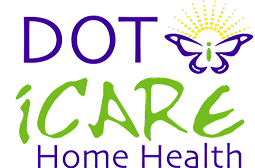You Are What You Eat! Maintaining Nutrition Into An Old Age

I know; ‘You are what you eat’ feels like a stale cliché, but there is truth to it. What you consume acts as fuel for your day just like a car needs gas. If you don’t eat enough food with nutrients (or just not enough food at all), you start to feel it and will slow down just like a car that doesn’t have enough gas.
Basically, if you eat like garbage, you will feel like garbage. But, good nutrition is sometimes easier said than done. Where does one even begin? A quick Google search will churn up hundreds of sites, news items, blogs, and videos that often contain conflicting information.
It can be enough to scare off a nutritional novice; who has time to sort through it all? It doesn’t have to be that way, though. Some small changes and a conversation with a professional can set your elderly loved one on the right path for better nutrition.
Make Gradual Changes
Don’t make a mistake of instantly changing your diet overnight. Your body is used to a certain amount of calorie intake in a certain way. Making immediate changes will upset this balance. At best, you will feel uncomfortable and hungry; at worst, it could be hazardous to your health. Make slow nutritional changes; allow your body to adapt. You will feel better and it will be easier to stick to your changes.
Regular Meals
When you are working and living with a family, it is easy to keep a schedule of meals. You eat breakfast before you go to work; have lunch during a pre-set time at work, and eat dinner with the family after work. After retirement, eating meals on a regular schedule can be more challenging, especially when you live on your own. With no pre-set time, you may skip lunch and breakfast without even thinking. No one to cook for means that you may decide not to eat dinner. It’s important to have nutrition intake on a regular basis. Set up a schedule and stick with it. It might help if you start planning out your meals as well.
Active Lifestyle
Nutritional eating will be the most beneficial if you have an active lifestyle. Try to be active (even talking a walk) for about 30 minutes a day. Match your portions with your activity level. Larger portions if you are very active; smaller if not as active.
What to Eat
To avoid being overwhelmed, start with the basics. Stay hydrated and drink lots of water throughout the day. Aim for 5 servings of fruits or vegetables every day. Stick with a high-fibre diet. It will help with digestion and can reduce cholesterol and regulate blood sugar. High-fibre foods include fruits, vegetables, legumes, and grains. People always talk about cutting all fats from the diet; don’t do this. Some fats are very good. Monounsaturated fats (avocadoes, nuts, olive oil) and polyunsaturated fats (salmon, herring, mackerel, walnuts) are healthy; Saturated fats (eggs, milk, cheese) are good in small portions; stay away from trans-fat (commercially baked goods, fried food, fast food)- it is never good, especially if you suffer from heart disease. This is just a partial list to get you started. Do the research and see where it takes you.
Be Happy
Healthy eating does not have to be boring eating. Do your best to make sure you enjoy your food. Sticking to a nutritional diet is much easier if you are not dreading every meal.
If you are caring for a loved one and worried about their nutritional intake, why not consider professional help? iCare Home Health will provide the best healthcare to your loved one in their own home. Offering premier senior homecare services in Burlington, Milton, and the Toronto West Area, iCare Home Health will take care of your loved one the way they deserve, while giving peace of mind. Take a look at our services (which includes meal planning) and see what best fits your needs. Contact us today.

